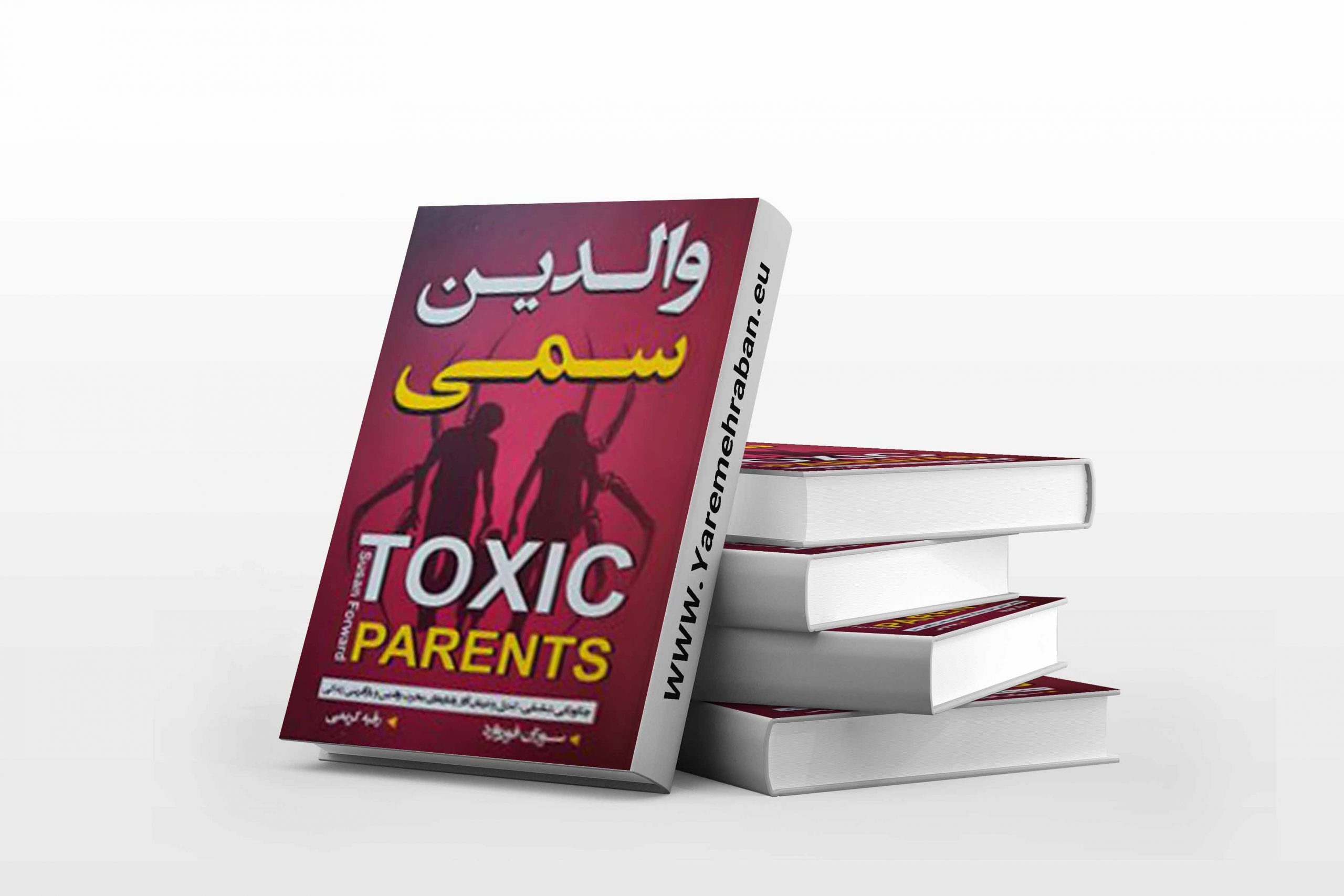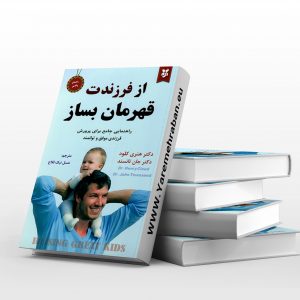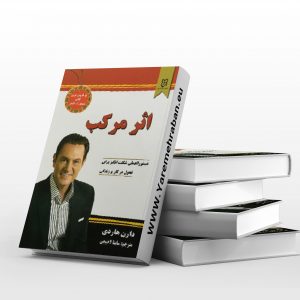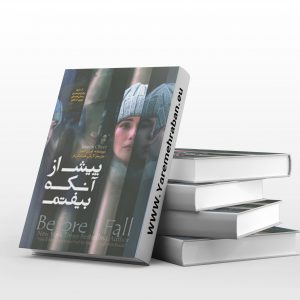Description
Toxic Parents is a psychological work by Susan Forward. Parents are also human and have flaws. Ignorance is one of the biggest flaws that causes them to make mistakes in dealing with their children.
There are also children whose parents have harmed them in critical situations such as addiction and mental illness, which remain traces of their adulthood.
Toxic Parents by Susan Forward is a book that seeks to help all those who have gone through this experience face these wounds and break free from the shackles of the book with the book’s solutions.
The parental education system is a set of beliefs and behaviors. It is based on these beliefs that the degree of freedom of children and how they are controlled within the family is determined.
This educational system changes from one family to another due to the influence of the cultural context of the family.
Lifestyle, in simple terms, is a way of life based on patterns of behavior that includes worldviews, values, and habits.
The family is the first environment in which one can observe the lifestyle among its members and recognize the conflict between them.
Parenting skills as one of the most important pillars on which human health and society depend has been neglected.
The method of education is not based on correct knowledge and education, but on empirical, emotional principles or false and outdated beliefs and learnings.
These issues become more complex when the concept of parenting is so sacred in many cultures that criticizing their behavior and examining their skills is accompanied by feelings of guilt.
But parents are also human and, like all human beings, have weaknesses and shortcomings. . The sense of parenthood is somewhat instinctive and natural and is influenced by environmental conditions and upbringing and facilities.
In their childhood, they may have had uninformed, sick, or repressive parents, and as a result may have made mistakes in their parenting style.
The family is the most important and main educational institution of the society. Without parents we are empty of love, we do not feel safe and we are helpless.
We depend on parental care as children. But during puberty and adolescence, the process of independence from parents peaks.
A healthy family in such a situation tries to manage this crisis by increasing their tolerance and adopting a reasonable space for reasoning.
But toxic parents are reluctant to understand this sensitive stage.
They see all the independence-seeking behavior of their children as a rebellion and a questioning of their power.
The culture of the society also has a direct role in the way parents treat their children.
The children of these parents learn from the very childhood that their parents use their power to force them to obey.
Fear is so ingrained in this group of children that in adulthood, even with professional and social success, they have a weak identity, low self-esteem and low self-esteem, and do not enjoy their lives and successes.
This book tries to provide solutions to the children of this group of parents by examining unhealthy parenting methods.
A healthy family is a family that has a friendly relationship between its members, especially parents and children.
To achieve a healthy human relationship, there are ways that parents must have the necessary knowledge and skills to be able to establish a spiritual and intellectual connection with family members and exercise their educational role.
Parents need to be aware of the proper ways and strategies to communicate with their children.
For example, in childhood, by loving, playing, etc., one can give personality to the child and establish an effective relationship with him by creating mental and psychological security, while in adolescence, the situation is different and by creating dignity. Self, strengthening self-confidence, etc. can provide the grounds for the adolescent’s growth and perfection and provide a way to communicate with him.
In the introduction to her book Psychology, Susan Forward points out the importance of examining the past, the definition of a toxic parent, the harm that a toxic parent does to their children, and how the book helps readers.
Accordingly, this book is a kind of journey that aims to know what has happened to the reader.
At the end of this book, the reader will gain insight into how to get rid of the influence of the bad behaviors of his unaware parents.
Various examples are provided throughout the book to help you better understand the material.
The process of reducing or neutralizing the negative effects of toxic parents is a gradual process and requires strong willpower.
But this effort eventually pays off, and the reader’s inner forces are freed from the shackles of the habit, revealing their true selves, which have been hurt by their parents’ behavior over the years.
Book chapters
The first part of the book, entitled “Toxic Parents”, includes the chapters “God-like Parents”, “Incompetent Parents”, “Dominant Parents”, “Addicted Parents”, “Abusive Parents”, “Beating Parents”, “Aggressive Parents” and “Family System”. Cites various examples to introduce the types of toxic parents with their misbehavior with their children.
The second part of Toxic Parents, entitled “Take Control of Your Life,” seeks to show the children of Toxic Parents what they can do to reduce the impact of parenting problems on their lives.
“You do not have to forgive”, “I have grown up” and “Making sense of myself” are among the chapters in this section.
Who is this book suitable for?
All those who have bitter memories of their childhood and adolescence in relation to their parents, with the suggested solutions of the book can reduce the effects of those experiences and improve the relationship between themselves and their parents.
Those who are parents or decide to become parents in the future, by reading this book, can recognize and avoid unhealthy parenting methods.
A review of toxic parent sections
At the beginning of the book is a questionnaire to identify toxic parents, which helps the reader find out if he or she has toxic parents by asking questions about his or her relationship with his or her parents.
In the first part of the questionnaire, questions are asked about the reader’s relationship with his parents as a child, which include the use of corporal punishment, creating feelings of insecurity, fear, embarrassment and discomfort in children due to alcohol or drug use by parents and severe depression or Other parental psychological problems can be mentioned.
In the second part of “Your Adult Life”, Susan Forward tries to identify the destructive effects of childhood on adulthood by asking questions about the reader’s personal life.
Wrong relationships in which the child is abused, a negative view of people and the perception of the worst possible events are among the topics covered in this section.
The third part, entitled “Your relationship with your parents in adulthood” includes such things as getting approval from parents to do different things, parents consider their adult child a child, parents feel guilty by threatening their children, and … to the reader in recognition Toxic parents are helped.
Finally, if the reader answers yes to one-third of the questions, this book is a great help in establishing a healthy relationship with parents.
Some chapters in the book may not exactly cover the reader’s mood, but studying them will help identify the parents’ toxic behaviors and offer solutions to improve those relationships.
Excerpt from Toxic Parents
“A lot of people have a hard time saying no to others. Most of them said yes before preparing to say no.
Thus, saying no is one of the most common behavioral problems of people who have been sexually harassed.
They consider themselves defenseless and weak, so they subconsciously think that they should do whatever is asked of them.
In one of the methods of this exercise, the clients are asked to close their eyes and remember the things that they should have said or not said, and try to revive their mood with full concentration at that time.
This situation can range from sexual harassment to other things. The person considers them one by one, puts himself in the same space and says no to the other party.
Depending on the situation, the client’s reaction can be intense and even accompanied by physical movements such as pushing the abuser, shouting, threatening and so on.
You have probably learned a lot from this part of the book. But I have no doubt that a question in your mind is waiting for an answer.
When to deal directly with someone who has sexually abused you, and whether or not to do so at all.
Also, do you talk to your other parent about this and let him know about the incident or not … “
Have you ever been angry with your parents?
Do you feel that you have no choice or that the older you get, the more they ignore you and treat you like a small child?
Such feelings are very common among adults and are rooted in the destructive effects of toxic parents.
If you also feel that you are the child of a poisoned parent, you have been directed to this page.
Familiarity with Susan Forward’s book Toxic Parents can open a new door for you;
Because the purpose of this book is to heal the wounds caused by toxic parents.
To have a better life and also to become a better parent in the future, join us to make you more familiar with Toxic Parents book.
About the Author of Toxic Parents: Susan Forward
Born in 1938, Susan Forward is the American author of the best-selling book Women Against Women. Susan is both a writer, a psychotherapist, and a speaker on self-improvement and psychological issues.
He has served as a psychotherapist and psychologist in many California centers.
Susan’s activities, both as a writer and as a guest on media psychology programs, have helped many people regain their self-confidence, inner strength, and emotional independence.
The book of poisonous parents has been written to speak to the hearts of many. This book talks about injuries that we may never allow ourselves to even think about.
Fear, respect, trust and sincere belief in parents are among the factors that prevent us from paying attention to the possible harms of our improper upbringing.
Susan Forward addresses such issues in this book.
He helps the audience to find the root of some of his psychological traumas and after recognizing them, to find solutions to improve the situation.
At the beginning of the book, the author helps you determine if your parents are toxic by setting up a questionnaire.
This diagnosis helps you know what approach you are reading in this book: taking care of yourself or identifying toxic behaviors and avoiding them in the future.
By reading this book without feeling guilty, you will find your psychological traumas and learn how to heal them;
It is as if you have gone to a psychologist and are healing your mental wounds.
You will also learn to treat toxic parents better, and you can manage your relationships without hurting or harming them further.
Of course, getting rid of the past is another valuable achievement that you will get from reading this book.
1- Introducing the book on YouTube
2- Introducing the book in Aparat













